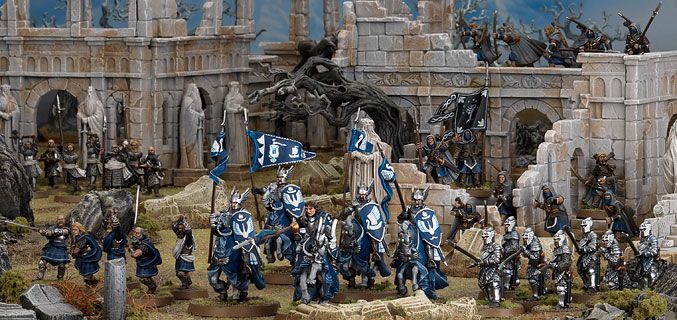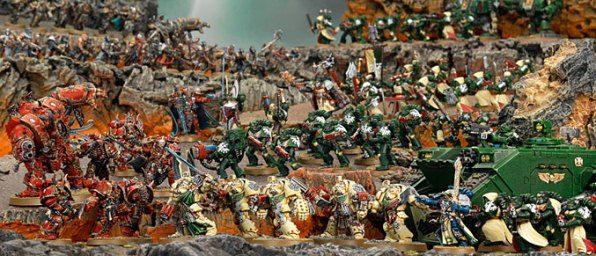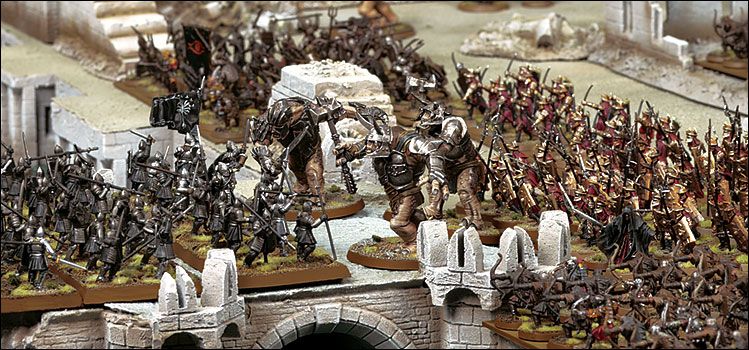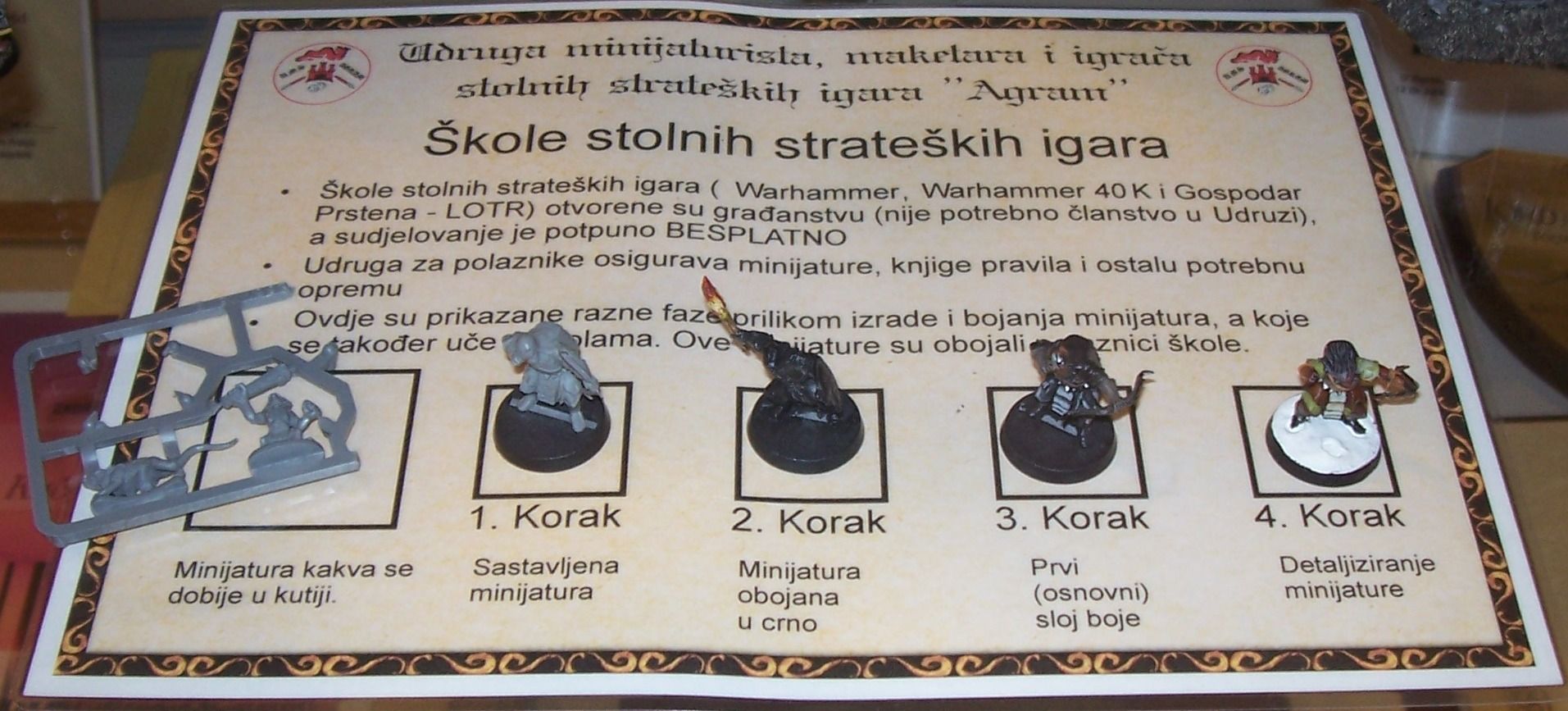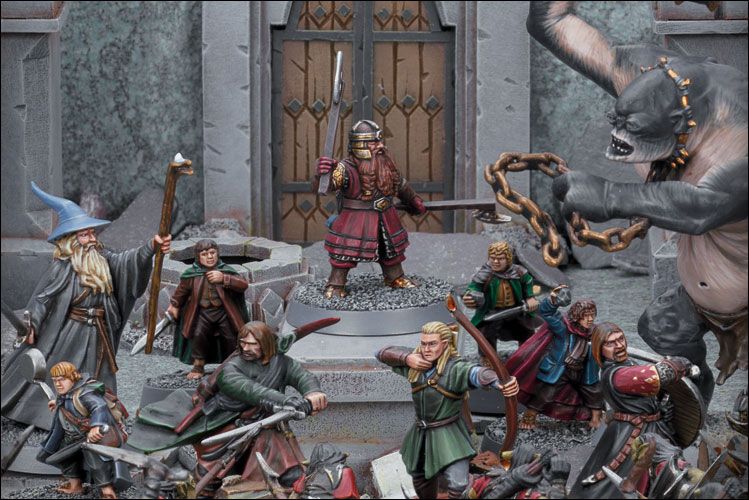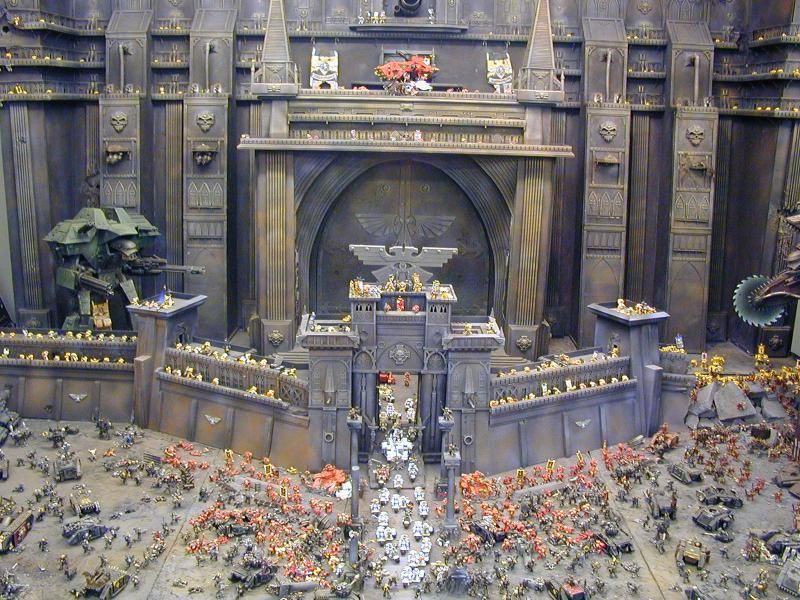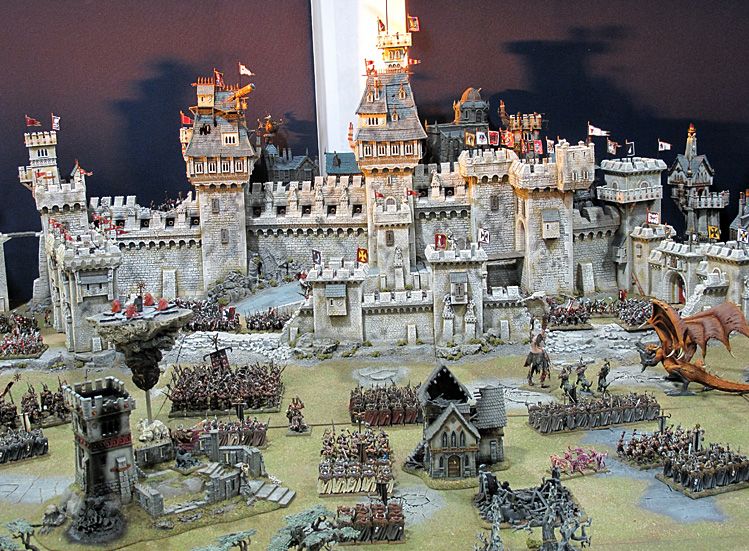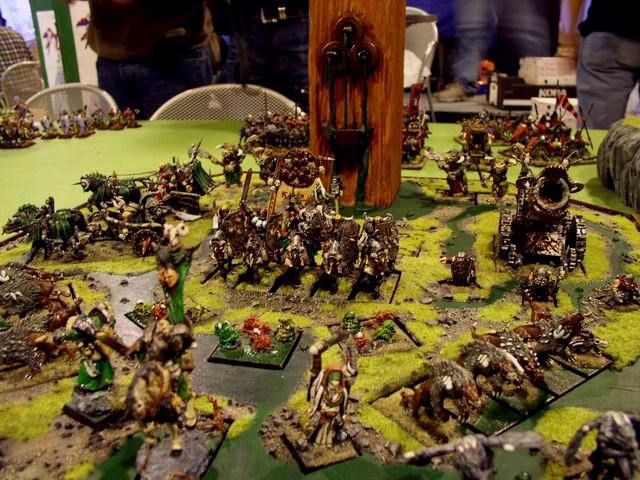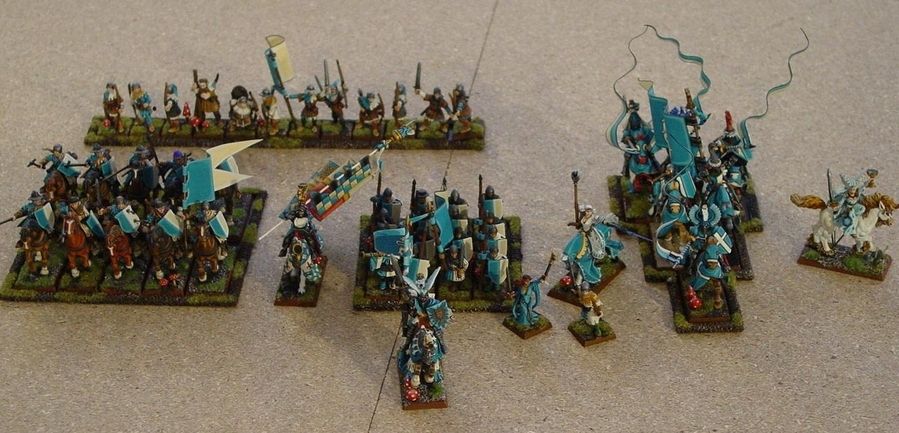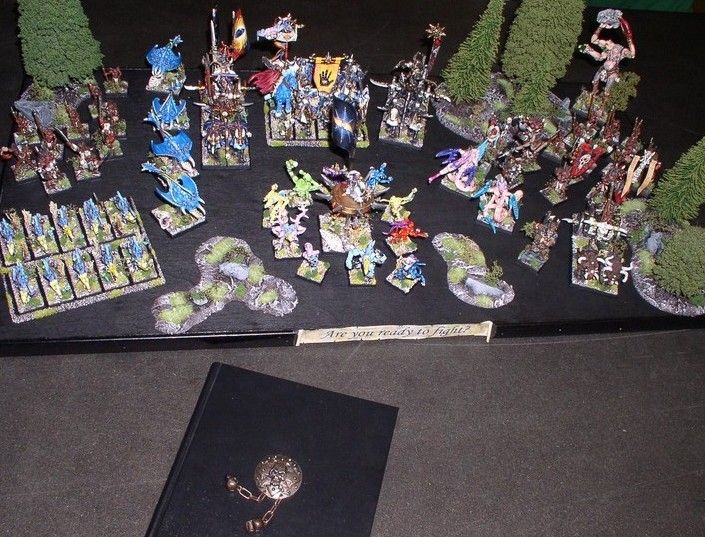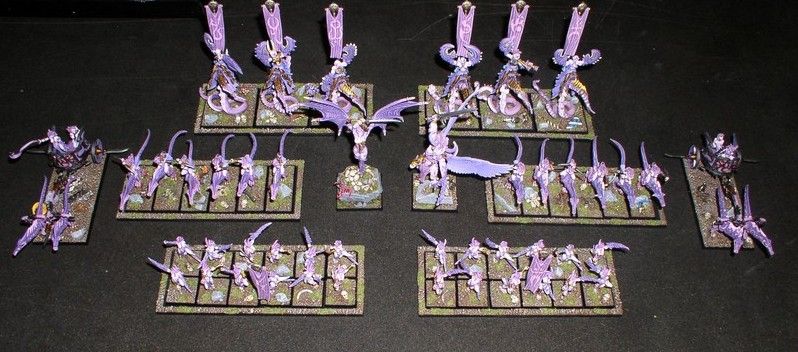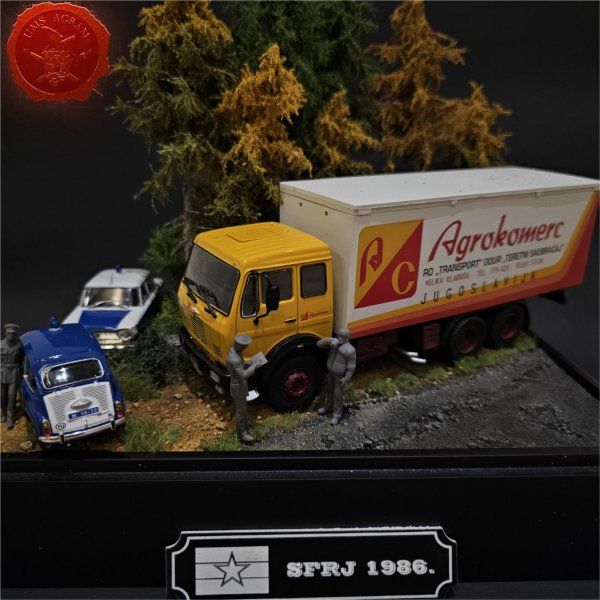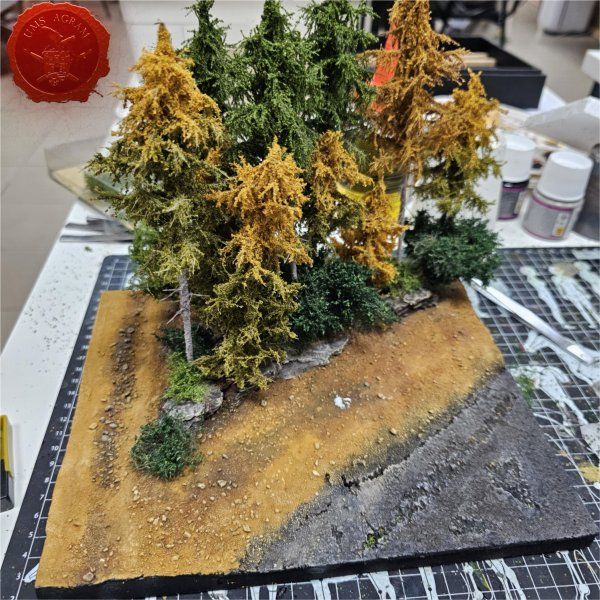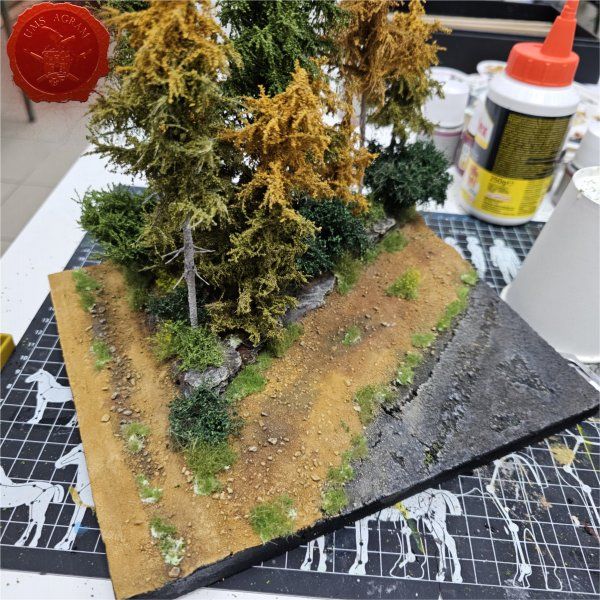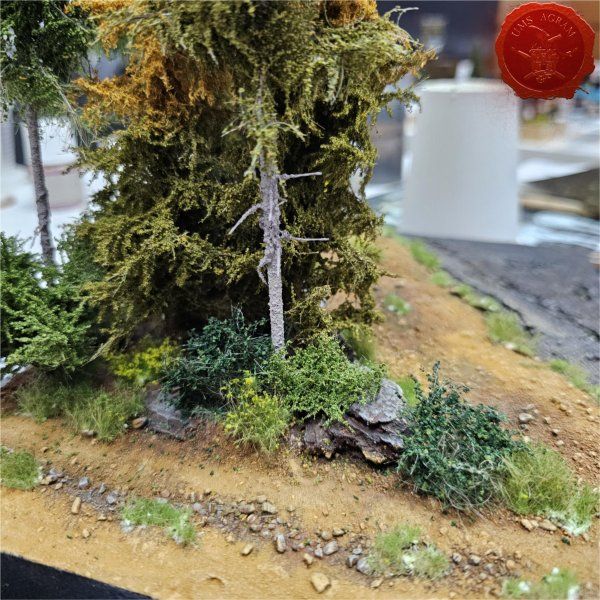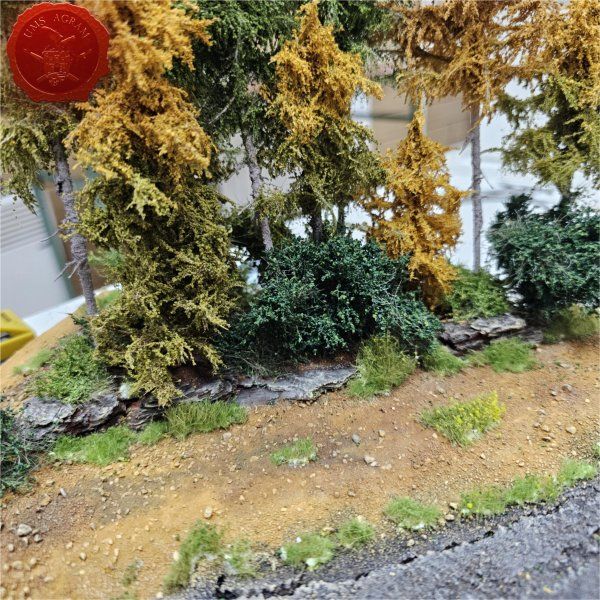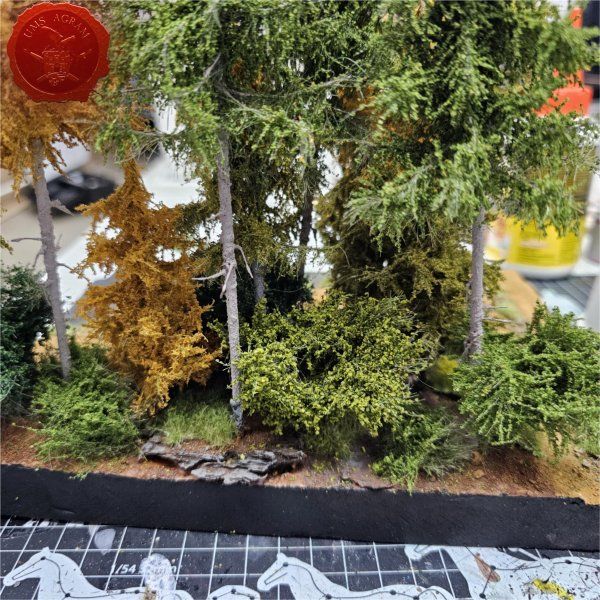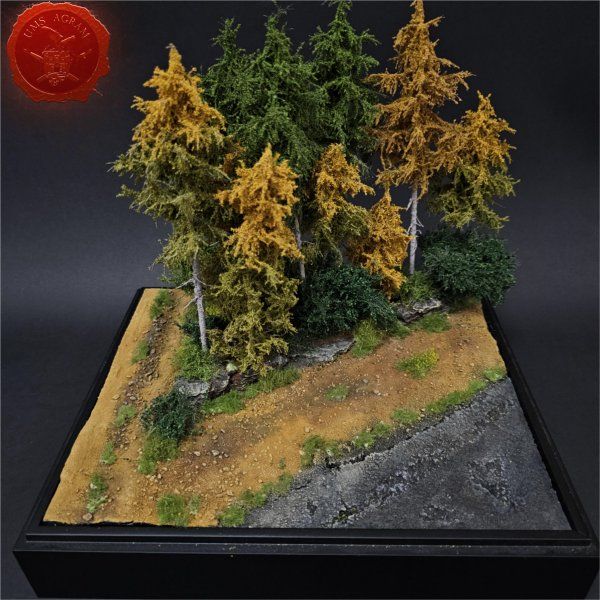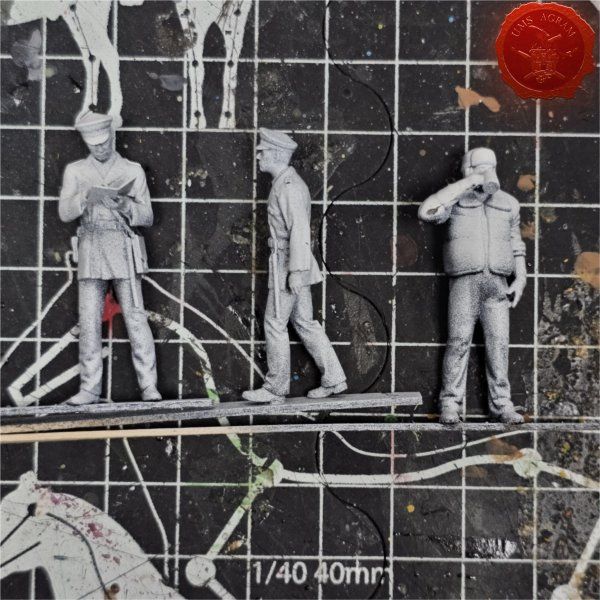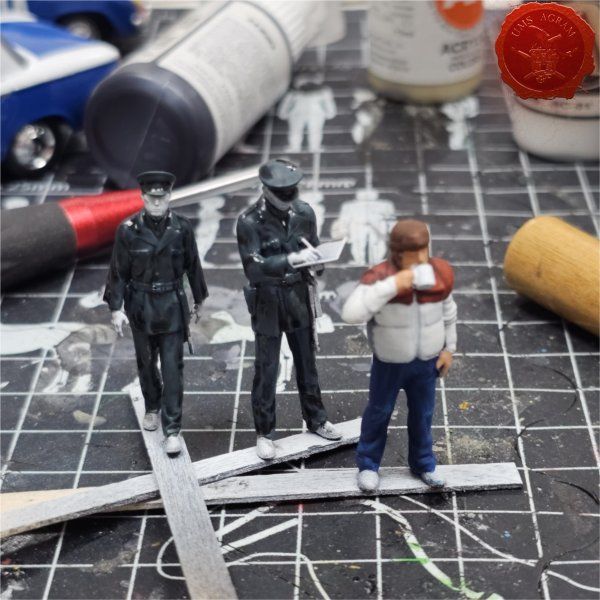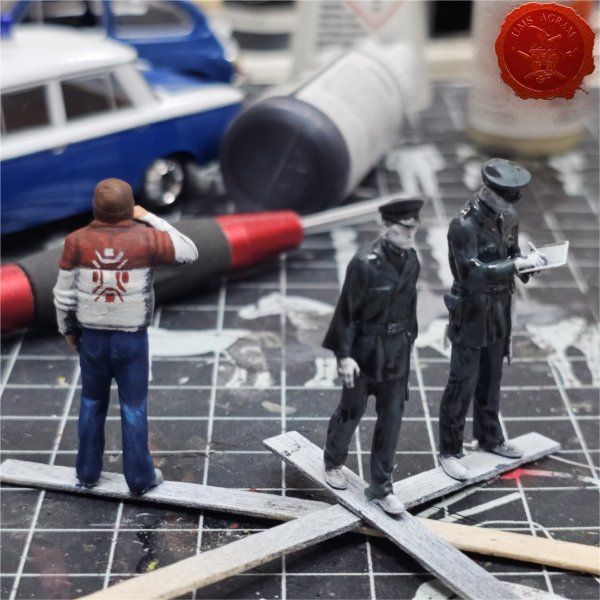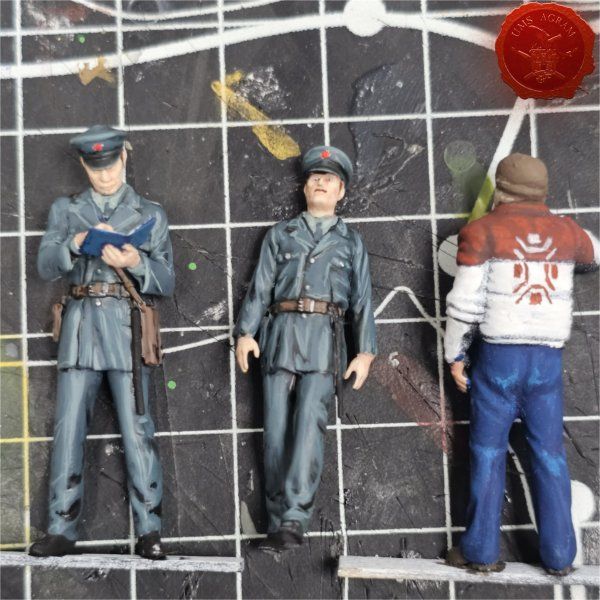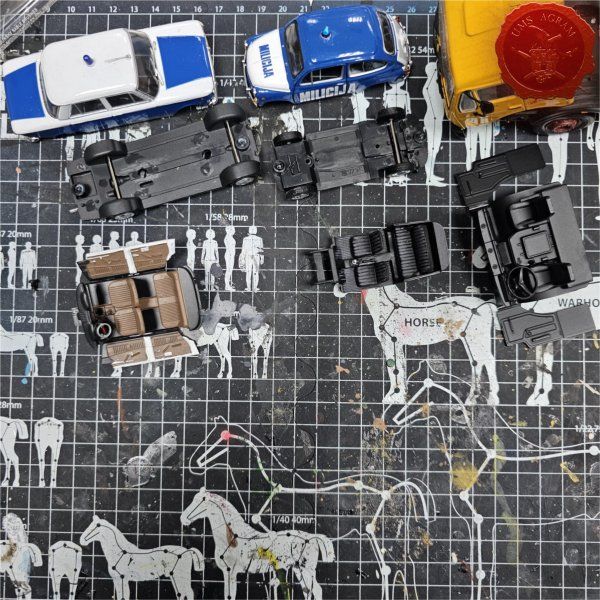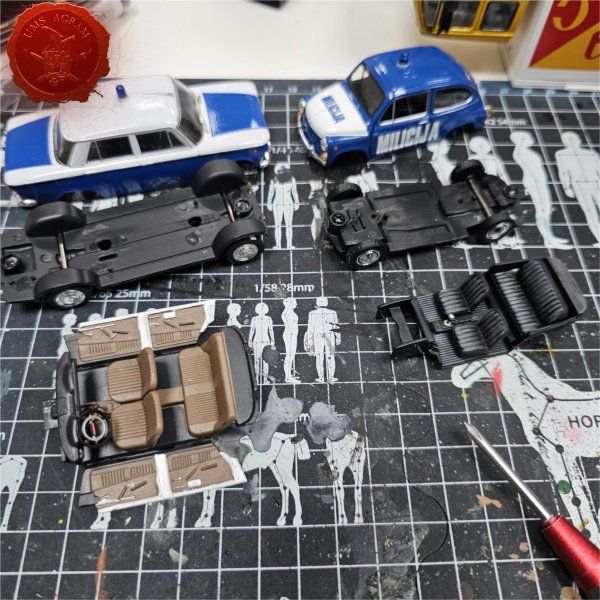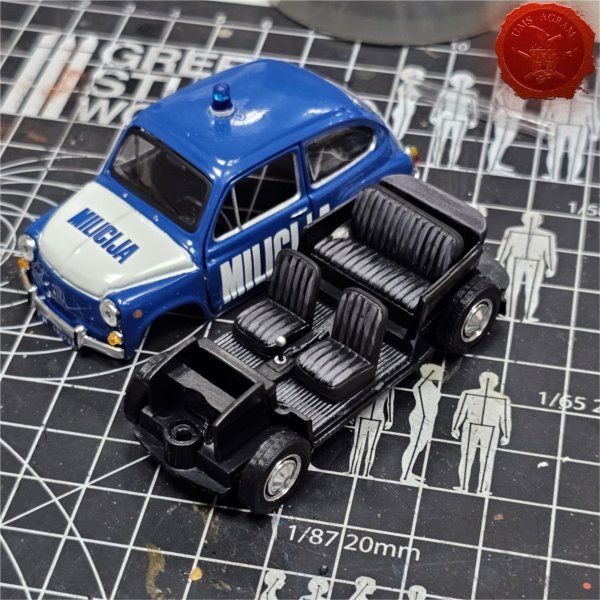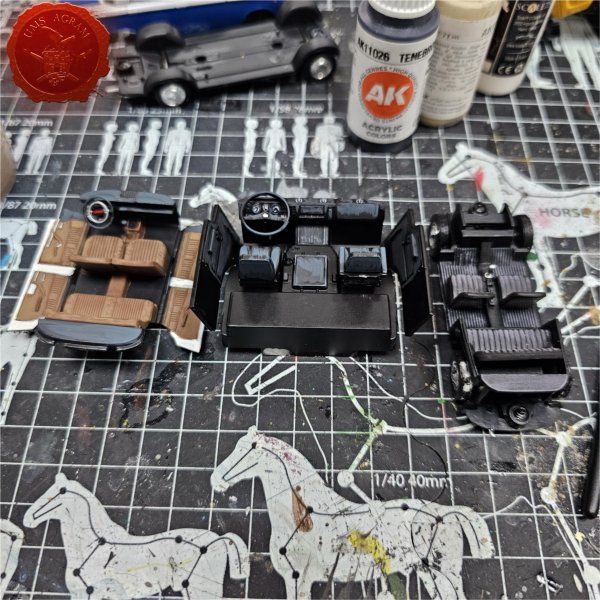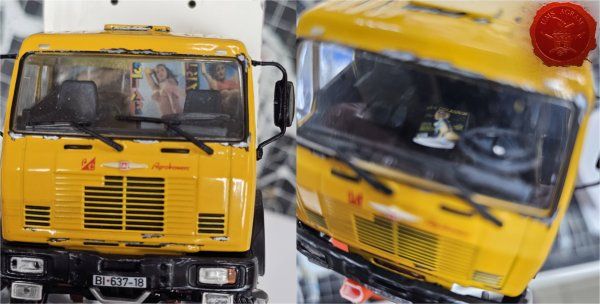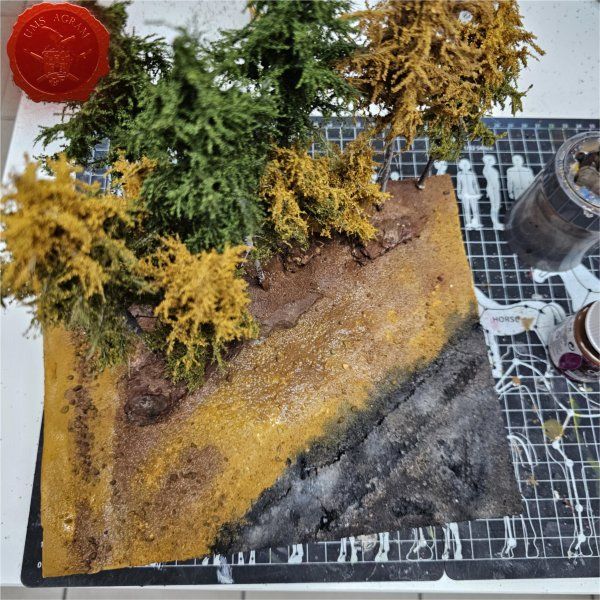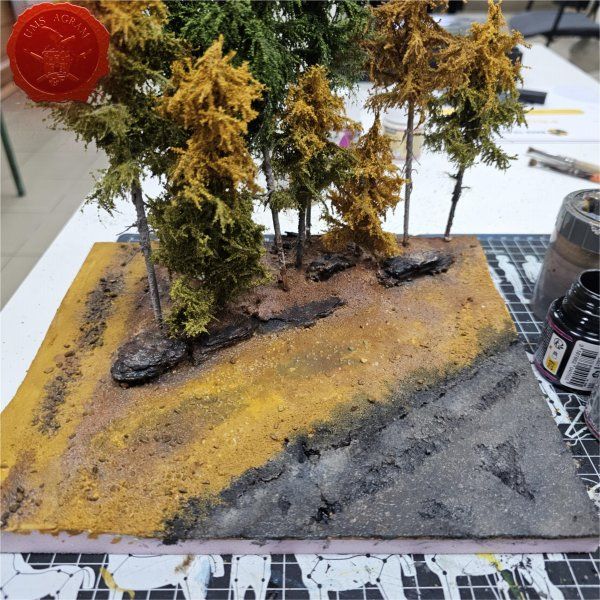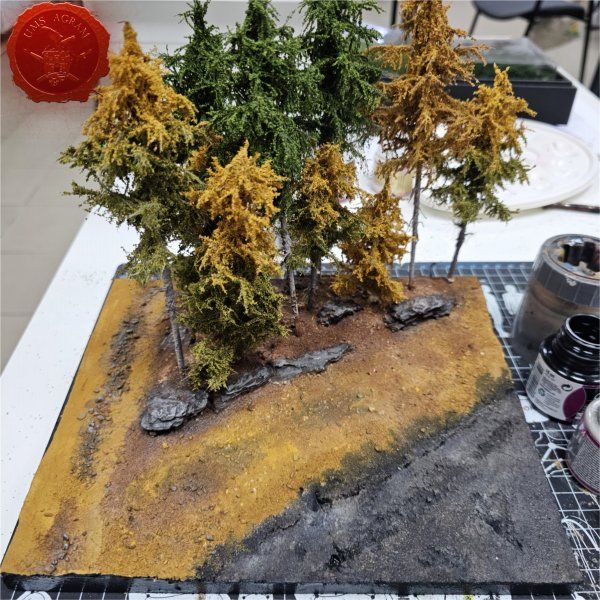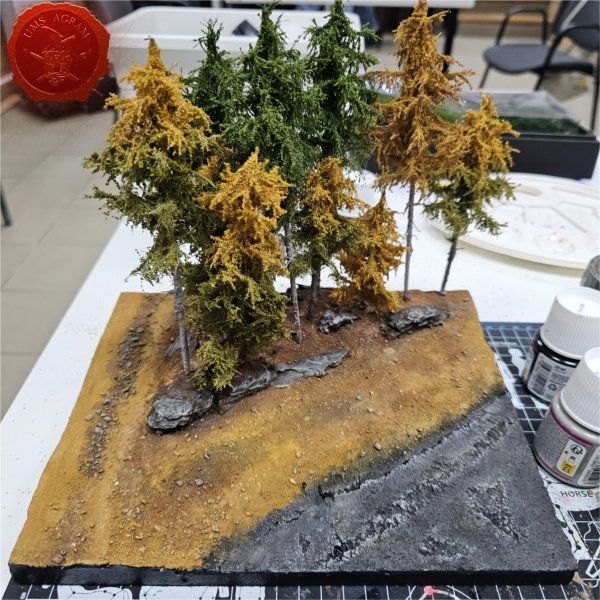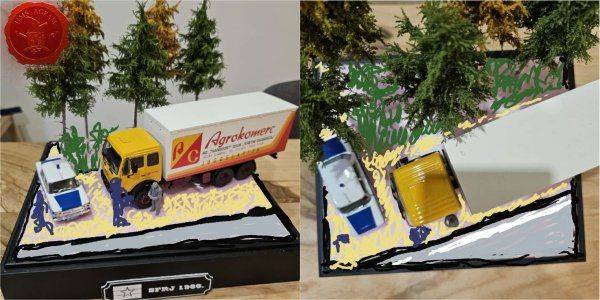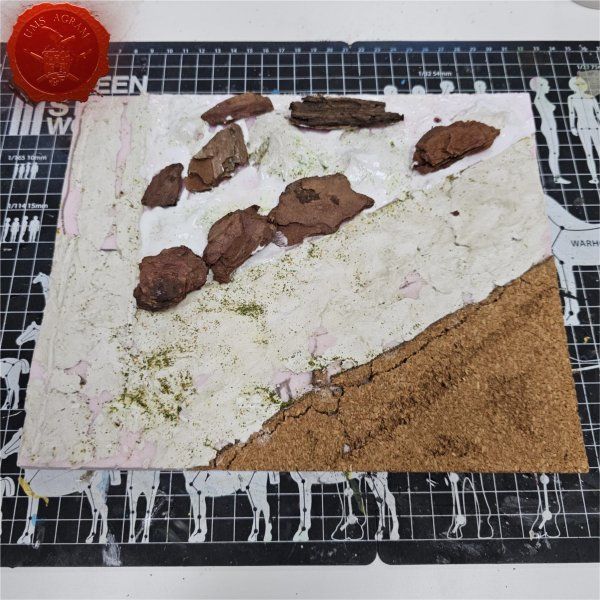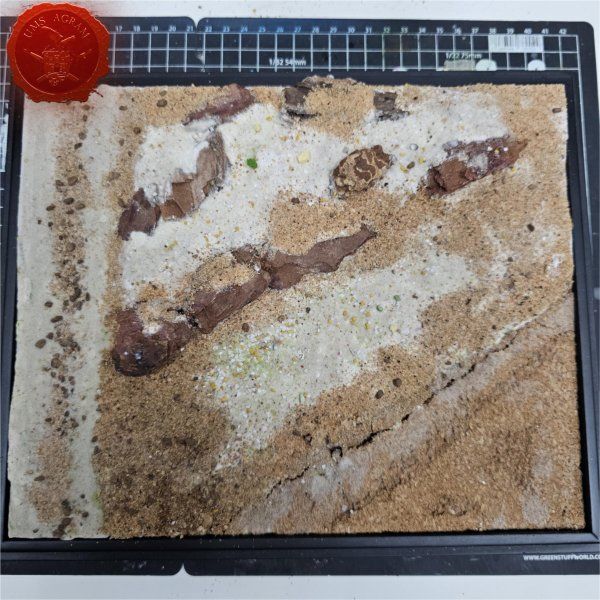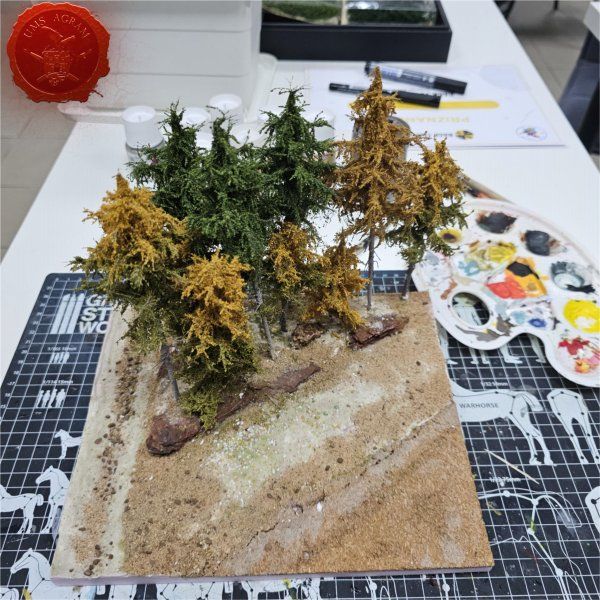Hobby Corner
As seen on the pictures beneath, this hobby consists of a couple of segments.
1. collecting the armies
2. assembling and painting the armies
3. playing games
4. making scenery
while thinking what to start the hobby with, why not check out our assembly of links.
The wonderful world of miniatures...
Enjoy the beautiful world of miniatures:
Collecting armies and gaming
Here are some of the armies by UMS "Agram": members
MORDHEIM (Marienburg, Undead, Witchhunters)
WARHAMMER FANTASY BATTLES (Chaos - Nurgle, Bretonnia, Chaos - Undivided, Chaos - Slaanesh)
Latest articles
-
SFRJ 1986 v2 Diorama part 5
array(2) { ["Article"]=> array(10) { ["id"]=> string(3) "492" ["member_id"]=> string(2) "35" ["title_eng"]=> string(27) "SFRJ 1986 v2 Diorama part 5" ["title_hrv"]=> string(29) "Diorama SFRJ 1986 v2– dio 5" ["mask_eng"]=> string(27) "sfrj_1986_v2_diorama_part_5" ["mask_hrv"]=> string(26) "diorama_sfrj_1986_v2_dio_5" ["content_eng"]=> string(3653) "Marko Paunović, 19th January 2026In this series of articles, we will follow my work on a new diorama, another in the 1986 series. This time I have again decided to use a former country. Another version of the SFRY 1986.
So far I have finished making the base, painting the base, painting the interior of the vehicle and painting the figures. Now it's time to add the vegetation
The pines/trees were already fixed to the base before painting, so the first vegetation I added was tall shrubs that filled the volume of the base.
Then I added lower vegetation like tall grass and lower bushes.
Finally, I added some short grass, making sure when I was making the parking lot and path that there was no vegetation in the places where the wheels pass.
The paint on the base has just dried up, so next time I'll add the vegetation.
When the diorama is turned to the back, the volume of the forest is visible.
Before placing the vehicles and miniatures on the base, the diorama looks like this.
" ["content_hrv"]=> string(3186) "U ovoj seriji članaka pratit ćemo moj rad na novoj diorami, još jednoj u nizu serijala 1986. Ovaj put sam se opet odlučio za bivšu državu. Druga verzija SFRJ 1986..
Do sada sam završio s izradom baze, bojanjem baze, bojanjem interijera vozila i bojanjem figura. Sada je došlo vrijeme za dodavanje vegetacije
Borovi/drveće je već bilo fiksirano na bazu prije bojanja pa je prva sljedeća vegetacija bila visoko žbunje kojim sam popunio volumen baze.
Potom sam dodao niže raslinje poput visoke trave i nižeg grmlja.
Na kraju sam dodao i nisku travu pri čemu sam pazio kad sam radio ugibalište i puteljak da vegetacije ne bude na mjestima gdje prolaze kotači.
Kada se dioramu okrene, vidi se volumen vegetacije u šumi.
Prije postavljanja vozila i minijatura, diorama izgleda ovako:
" ["created"]=> string(19) "2026-01-19 10:46:08" ["modified"]=> string(19) "2026-01-19 11:00:21" } ["Member"]=> array(10) { ["id"]=> string(2) "35" ["group_id"]=> string(1) "1" ["first_name"]=> string(5) "Marko" ["last_name"]=> string(9) "Paunović" ["first_name_mask"]=> string(5) "marko" ["last_name_mask"]=> string(8) "paunovic" ["username"]=> string(5) "marko" ["password"]=> string(40) "3bd37b326d19d1880d3b93a4b32e8fb3a90fa122" ["born"]=> string(19) "2033-03-07 20:35:00" ["created"]=> string(19) "2009-06-02 20:37:03" } } -
SFRJ 1986 v2 Diorama part 4
array(2) { ["Article"]=> array(10) { ["id"]=> string(3) "491" ["member_id"]=> string(2) "35" ["title_eng"]=> string(27) "SFRJ 1986 v2 Diorama part 4" ["title_hrv"]=> string(29) "Diorama SFRJ 1986 v2– dio 4" ["mask_eng"]=> string(27) "sfrj_1986_v2_diorama_part_4" ["mask_hrv"]=> string(26) "diorama_sfrj_1986_v2_dio_4" ["content_eng"]=> string(2405) "Marko Paunović, 19th January 2026In this series of articles, we will follow my work on a new diorama, another in the 1986 series. This time I have again decided to use a former country. Another version of the SFRY 1986.
After the base and the vehicles, I started painting the miniatures. Two policemen and a truck driver. The first step was the base color – black and then white..
After that, I started with the basic colors, concentrating a little more on the truck driver..
Considering the year and location of the action, I decided that his jacket should have the logo from the 1984 Sarajevo Winter Olympics..
Then I threw myself at the policemen..
The paint on the base has just dried up, so next time I'll add the vegetation.
" ["content_hrv"]=> string(2360) "U ovoj seriji članaka pratit ćemo moj rad na novoj diorami, još jednoj u nizu serijala 1986. Ovaj put sam se opet odlučio za bivšu državu. Druga verzija SFRJ 1986..
Nakon baze i vozila, bacio sam se na bojanje minijatura. Dva milicajca i vozač kamiona. Prvi korak je bila temeljna boja – crna pa bijela.
Nakon toga, krenuo sam s osnovnim bojama, malo više se koncentrirajući na vozača kamiona.
S obzirom na godinu i mjesto radnje, odlučio sam se da mu jakna ima logo od ZOI Sarajevo 1984.
Zatim sam se bacio na milicajce.
Taman se tako nekako osušila i boja na bazi pa ću sljedeći puta obraditi i dodavanje vegetacije.
" ["created"]=> string(19) "2026-01-19 10:35:45" ["modified"]=> string(19) "2026-01-19 10:35:45" } ["Member"]=> array(10) { ["id"]=> string(2) "35" ["group_id"]=> string(1) "1" ["first_name"]=> string(5) "Marko" ["last_name"]=> string(9) "Paunović" ["first_name_mask"]=> string(5) "marko" ["last_name_mask"]=> string(8) "paunovic" ["username"]=> string(5) "marko" ["password"]=> string(40) "3bd37b326d19d1880d3b93a4b32e8fb3a90fa122" ["born"]=> string(19) "2033-03-07 20:35:00" ["created"]=> string(19) "2009-06-02 20:37:03" } } -
SFRJ 1986 v2 Diorama part 3
array(2) { ["Article"]=> array(10) { ["id"]=> string(3) "490" ["member_id"]=> string(2) "35" ["title_eng"]=> string(27) "SFRJ 1986 v2 Diorama part 3" ["title_hrv"]=> string(29) "Diorama SFRJ 1986 v2– dio 3" ["mask_eng"]=> string(27) "sfrj_1986_v2_diorama_part_3" ["mask_hrv"]=> string(26) "diorama_sfrj_1986_v2_dio_3" ["content_eng"]=> string(3113) "Marko Paunović, 19th January 2026In this series of articles, we will follow my work on a new diorama, another in the 1986 series. This time I have again decided to use a former country. Another version of the SFRY 1986.
As I announced last time, it's time to get down to the vehicles. The first thing I did was disassemble the models and take out the interiors of all three vehicles.
As you can see in the picture, the interior of the vehicle is poorly or not at all painted, so a lot of attention and time was spent there. I painted the upholstery in shades of gray, or brown on the Tristač. I brought out the details on the dashboard and around the gearbox.
There was something missing from the start on the Fićo, but I couldn't figure out what it was until Kruno pointed out to me that the flashing lights were missing. I fixed that with a small 3mm clear LED that I painted in Tamiya Clear Blue with a silver edge.
This completes the painting of the vehicles’ interior.
The finishing touches are the decorations in the truck's cabin.
Next time we will continue with painting the figures.
" ["content_hrv"]=> string(3080) "U ovoj seriji članaka pratit ćemo moj rad na novoj diorami, još jednoj u nizu serijala 1986. Ovaj put sam se opet odlučio za bivšu državu. Druga verzija SFRJ 1986..
Kao što sam najavio prošli put, vrijeme je da se bacim na vozila. Prvo što sam napravio jest da sam rastavio modele i izvadio unutrašnjost sva tri vozila
Kako je vidljivo na slici, unutrašnjost vozila je slabo ili nikako obojana stoga je tu otišlo mnogo pažnje i vremena. Tapecirunge sam obojao u sive nijanse, odnosno u smeđe na tristaču. Izvukao sam detalje na komandnim pločama te oko mjenjača.
Na fićeku mi je otpočetka nešto falilo, ali nisam mogao skužiti što dok mi Kruno nije skrenuo pažnju da fali rotirka. Nju sam sredio pomoću jedne male 3mm prozirne LED koju sam obojao u Tamiya Clear Blue sa srebrnim rubom.
Time je završeno bojanje unutrašnjosti vozila.
Završni detalji su ukrasi u kabini kamiona.
Sljedeći put nastavljamo sa bojanjem figura.
" ["created"]=> string(19) "2026-01-19 10:28:32" ["modified"]=> string(19) "2026-01-19 10:28:32" } ["Member"]=> array(10) { ["id"]=> string(2) "35" ["group_id"]=> string(1) "1" ["first_name"]=> string(5) "Marko" ["last_name"]=> string(9) "Paunović" ["first_name_mask"]=> string(5) "marko" ["last_name_mask"]=> string(8) "paunovic" ["username"]=> string(5) "marko" ["password"]=> string(40) "3bd37b326d19d1880d3b93a4b32e8fb3a90fa122" ["born"]=> string(19) "2033-03-07 20:35:00" ["created"]=> string(19) "2009-06-02 20:37:03" } } -
SFRJ 1986 v2 Diorama part 2
array(2) { ["Article"]=> array(10) { ["id"]=> string(3) "489" ["member_id"]=> string(2) "35" ["title_eng"]=> string(27) "SFRJ 1986 v2 Diorama part 2" ["title_hrv"]=> string(29) "Diorama SFRJ 1986 v2– dio 2" ["mask_eng"]=> string(27) "sfrj_1986_v2_diorama_part_2" ["mask_hrv"]=> string(26) "diorama_sfrj_1986_v2_dio_2" ["content_eng"]=> string(3226) "Marko Paunović, 19th January 2026In this series of articles, we will follow my work on a new diorama, another in the 1986 series. This time I have again decided to use a former country. Another version of the SFRY 1986.
Last time I explained how I created the terrain, and this time I'll be painting the terrain. The terrain itself consists of several parts: an asphalt road, a turnoff and path, and the terrain in the forest.
Since I wanted all the surfaces to have similar tones, I decided to paint without a base color, applying the main color immediately. The paint I applied was very thin so it stayed wet for a long time, which allowed me to mix the base colors and get a uniform tone.
After applying the basic tones, I started shading. I also used the same principle, using quite diluted tones to create unevenness in certain parts of the surface.
Then I added a layer that I could most simply call wash. A very diluted darker shade of color.
I applied the final shades using another technique, the simplest one – dry brush.
While these paints were drying, I was simultaneously disassembling and painting the interior of the car and truck, as well as the figures, which will be the subject of future articles.
" ["content_hrv"]=> string(3277) "U ovoj seriji članaka pratit ćemo moj rad na novoj diorami, još jednoj u nizu serijala 1986. Ovaj put sam se opet odlučio za bivšu državu. Druga verzija SFRJ 1986..
Prošli put sam objasnio kako sam izradio teren, a ovaj put ću se baviti bojanjem terena. Sami teren se sastoji od nekoliko dijelova: asfaltna cesta, ugibalište i puteljak te teren u šumi.
S obzirom da sam htio da sve površine imaju slične tonove, odlučio sam se bojati bez temeljne boje, nanoseći odmah glavni ton. Boju koju sam nanosio bila je jako razvodnjena tako da je dugo bila mokra i to mi je omogućavalo miješanje osnovnih tonova i dobivanje ujednačene tonove.
Nakon nanošenja osnovnih tonova, krenuo sam sa nijansiranjem. Također sam radio istim principom, dosta razvodnjene tonove kako bih dobio neujednačenost pojedinih dijelova površine.
Potom sam dodao sloj koji bih najjednostavnije mogao nazvati wash. Jako razvodnjenu tamniju nijansu boje.
Završne nijanse sam nanio drugom tehnikom, najjednostavnijom – dry brush.
Dok su se ove boje sušile, paralelno sam rastavio i bojao unutrašnjost automobila i kamiona te figura što će biti tema sljedećih članaka.
" ["created"]=> string(19) "2026-01-19 09:32:11" ["modified"]=> string(19) "2026-01-19 09:32:11" } ["Member"]=> array(10) { ["id"]=> string(2) "35" ["group_id"]=> string(1) "1" ["first_name"]=> string(5) "Marko" ["last_name"]=> string(9) "Paunović" ["first_name_mask"]=> string(5) "marko" ["last_name_mask"]=> string(8) "paunovic" ["username"]=> string(5) "marko" ["password"]=> string(40) "3bd37b326d19d1880d3b93a4b32e8fb3a90fa122" ["born"]=> string(19) "2033-03-07 20:35:00" ["created"]=> string(19) "2009-06-02 20:37:03" } } -
SFRJ 1986 v2 Diorama part 1
array(2) { ["Article"]=> array(10) { ["id"]=> string(3) "488" ["member_id"]=> string(2) "35" ["title_eng"]=> string(27) "SFRJ 1986 v2 Diorama part 1" ["title_hrv"]=> string(29) "Diorama SFRJ 1986 v2– dio 1" ["mask_eng"]=> string(27) "sfrj_1986_v2_diorama_part_1" ["mask_hrv"]=> string(26) "diorama_sfrj_1986_v2_dio_1" ["content_eng"]=> string(3178) "Marko Paunović, 19th January 2026In this series of articles, we will follow my work on a new diorama, another in the 1986 series. This time I have again decided to use a former country. Another version of the SFRY 1986.
As always, everything starts with an idea. This time, the idea came from a model of an Agrokomerc truck that Bojan brought me from Serbia (where it was published as part of a magazine). The design itself changed a bit over time (the first few months of planning). Initially, it was supposed to be just a truck at a roadside stop. Then the idea came to include the Police. And then I got two police vehicles. Fić and Tristač. Basically, this is the first drawing that started it all.
The base for the diorama came from Moson, from Buco. A fantastic combination of MDF and Styrodur that allows you to remove the diorama itself, but also to lower the terrain below the base level. I removed the Styrodur base, modeled it a little to get different terrain height levels. I modeled the road from a cork board, and assembled the rest of the terrain from DAS clay and wooden bark.
Once everything was dry I added texture. Two or three sizes of sand and that was it.
And when that layer was dry, I used a drill to fix the trees to the back of the base. Since all the trees had tall trunks, I decided to leave them as is and not move them during the painting process.
That's it for this week. We already have a nice outline of the diorama, and next time we'll continue with painting the base.
" ["content_hrv"]=> string(3151) "U ovoj seriji članaka pratit ćemo moj rad na novoj diorami, još jednoj u nizu serijala 1986. Ovaj put sam se opet odlučio za bivšu državu. Druga verzija SFRJ 1986..
Kao i uvijek, sve počinje idejom. Ovoga puta, ideja se izrodila iz makete Agrokomercovog kamiona kojeg mi je Bojan dofurao iz Srbije (gdje je izašao u sklopu nekog časopisa). Sami dizajn se malo mijenjao tijekom vremena (prvih par mjeseci planiranja). Otpočetka, trebao je to biti samo kamion na nekom ugibalištu pored ceste. Onda se rodila ideja da stavim i Miliciju. A onda sam nabavio i dva milicijska vozila. Fiću i Tristača. Uglavnom, ovo je prvi crtež od kojeg je sve krenulo.
Baza za dioramu je došla s Mosona, od Buce. Fantastičan spoj MDFa i stirodura koji omogućava vađenje same diorame, ali i upuštanje terena ispod razine baze. Izvadio sam stirodurnu podlogu, malo je izmodelirao da dobijem razne razine visine terena. Cestu sam izmodelirao iz ploče pluta, a ostatak terena složio od DAS glinamola i drvenih kora.
Kada se sve osušilo dodao sam teksturu. Dvije ili tri veličine pijeska i to je to.
A kada se i taj sloj osušio, bušilicom sam fiksirao drveće na stražnji dio baze. S obzirom da su sva stable imala visoka debla, odlučio sam ih ostaviti tako i ne micati ih za process bojanja.
To je to za ovaj tjedan. Imamo već lijepe obrise diorame, a sljedeći puta nastavljamo sa bojanjem baze.
" ["created"]=> string(19) "2026-01-19 09:18:40" ["modified"]=> string(19) "2026-01-19 09:18:40" } ["Member"]=> array(10) { ["id"]=> string(2) "35" ["group_id"]=> string(1) "1" ["first_name"]=> string(5) "Marko" ["last_name"]=> string(9) "Paunović" ["first_name_mask"]=> string(5) "marko" ["last_name_mask"]=> string(8) "paunovic" ["username"]=> string(5) "marko" ["password"]=> string(40) "3bd37b326d19d1880d3b93a4b32e8fb3a90fa122" ["born"]=> string(19) "2033-03-07 20:35:00" ["created"]=> string(19) "2009-06-02 20:37:03" } }
Latest battle-reports
- Kill Team - Blooded vs. Vespid Stingwings 28th February 2025, GW - Warhammer 40.000, and Antoni Pastuović (Imperial Guard)
- 22nd April 2022, GW - Warhammer 40.000, Borna Pleše (Space Marines) and Kristijan Kliska (Tau Empire)
- 17th November 2021, GW - Warhammer 40.000, and Nino Marasović (Space Marines)

